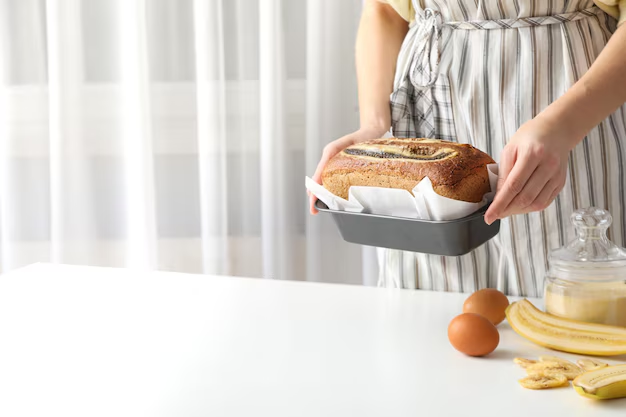Keeping Your Scrambled Eggs Fresh: How Long They Last in the Refrigerator
Ever opened your fridge, spotted a container of scrambled eggs, and wondered if they’re still safe to eat? You’re not alone. Scrambled eggs are a breakfast staple, but how long do they really last once cooked? More importantly, how can you ensure you're properly storing them for safety and freshness? This guide tackles these questions by exploring scrambled eggs' shelf life in the refrigerator, alongside some practical food storage tips and kitchen wisdom.
📅 Understanding the Shelf Life of Scrambled Eggs
Food safety is pivotal when dealing with perishables like eggs. Once scrambled, eggs have a different storage profile compared to their raw counterparts.
How Long Do Scrambled Eggs Last in the Refrigerator?
When stored properly, scrambled eggs typically last 3 to 4 days in the refrigerator. This timeframe aligns with general guidelines for cooked egg dishes, ensuring both safety and quality.
- Freshness Tip: The texture and flavor of scrambled eggs may begin to decline after the first day or two, although they remain safe to eat within the 3-4 day window.
Factors Influencing Longevity
Several factors impact the shelf life of scrambled eggs:
- Storage Temperature: Eggs should be stored below 40°F (4°C). Consistent refrigeration is key to preventing bacterial growth.
- Container Type: Use airtight containers to minimize exposure to air and moisture, which can speed up spoilage.
- Initial Cooking: Rapidly cool scrambled eggs right after cooking by refrigerating them promptly. Leaving them out for extended periods can shorten shelf life and increase the risk of foodborne illness.
🥚 Best Practices for Storing Scrambled Eggs
Ensuring your scrambled eggs are properly stored not only extends their shelf life but preserves their taste and texture.
Choosing the Right Container
- Airtight Containers: These help maintain freshness by protecting against air exposure and potential contamination.
- Portion Control: Divide eggs into meal-sized portions when storing to limit repeated exposure to air.
Cooling and Refrigeration
- Prompt Refrigeration: Cool your scrambled eggs quickly after cooking. Avoid keeping them at room temperature for more than 2 hours.
- Fridge Placement: Store eggs on an interior shelf, not the door, where the temperature fluctuates more frequently.
Useful Storage Tips
- Labeling: Keep track of the storage date by labeling containers. This practice helps prevent accidental spoilage.
- Organize: Arrange your fridge to ensure eggs are easily accessible and not buried under heavier items.
🍳 Reheating Scrambled Eggs: Ensuring Quality and Safety
Reheating scrambled eggs requires a delicate balance to maintain flavor and food safety.
Effective Reheating Methods
Microwave: Use microwave-safe dishes, and cover the eggs with a damp paper towel to retain moisture. Heat in short bursts, stirring occasionally, until heated evenly.
Stovetop: Gently warm eggs in a skillet over low heat. Stir continuously to avoid drying out.
💡 Tip: Aim for an internal temperature of 165°F (74°C) to ensure food safety during reheating.
Avoiding Common Mistakes
- Overheating: Avoid excessive heat as it can make eggs rubbery and unappetizing.
- Frequent Reheating: Reheating more than once is generally not recommended — it can lead to a loss in texture and flavor.
🍽️ Extending the Shelf Life: Can You Freeze Scrambled Eggs?
Many home cooks wonder about freezing scrambled eggs to extend their shelf life.
Is Freezing an Option?
- Freezing Feasibility: Scrambled eggs can be frozen, retaining quality for up to three months. Ensure they're cooled and stored in airtight, freezer-safe containers.
Steps for Freezing
- Cool the scrambled eggs quickly after cooking.
- Portion the cooled eggs as desired.
- Seal in airtight containers or freezer bags, removing as much air as possible.
- Label with the date to track storage duration.
Thawing and Reheating
- Thaw In Fridge: Transfer the frozen eggs to the refrigerator to thaw overnight.
- Reheat Carefully: Use the microwave or stovetop methods mentioned, ensuring even heating.
📌 Summary: Quick Tips for Keeping Scrambled Eggs Fresh
Here's a handy summary to keep your scrambled eggs fresh and safe to enjoy:
- 🥶 Refrigerate Promptly: Store within 2 hours of cooking.
- 📅 Keep Time in Mind: Use within 3-4 days for best results.
- ❄️ Freezing Option: For long-term storage, freeze up to 3 months.
- 🍲 Reheat Safely: Use microwave or stovetop, aiming for 165°F (74°C).
- 🛡️ Safety First: Always prioritize food safety and quality over shelf life.
Navigating the ins and outs of scrambled egg storage ensures your meals remain delicious while minimizing waste. Remember, proper storage techniques not only extend shelf life but also enhance your dining experience every time you reach into the fridge.
Whether you're batch-cooking for the week or seeking to reduce food waste, these strategies for storing scrambled eggs will keep you confident and safe in your culinary endeavors. Enjoy your meals, knowing they're fresh and tasty each time!

